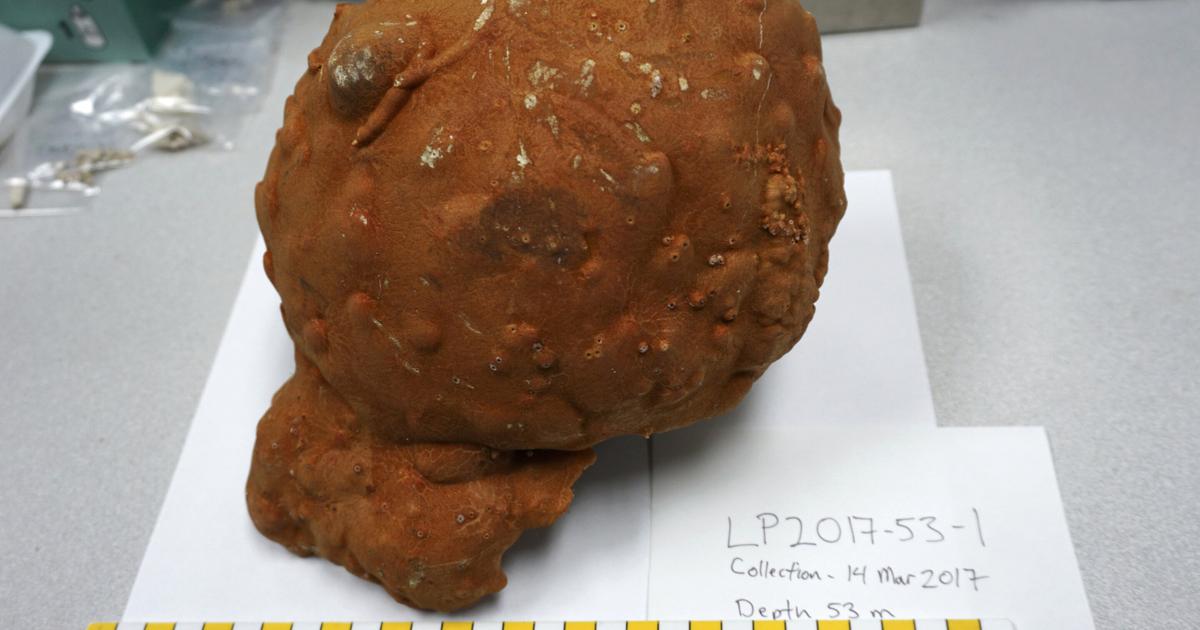Small century-old sponges collected between 33 and 91 meters depths off the coast of Puerto Rico and the island of St. Croix in the Caribbean Sea are causing discord in the scientific community.
In a study published this week in Nature Climate Change, a team ensures that the analysis of these organisms (of the species
Ceratoporella nicholsoni
) shows that the temperature of the ocean would have increased, on average, by + 1.7°C in 2020 compared to the start of the industrial era.
This is around 0.5°C more than what was estimated in the latest IPCC (Intergovernmental Panel on Climate Change) reports.
“
Such a revision of warming suggests that the Earth's climate system is expected to exceed 2°C of warming by the end of the 2020s, two decades earlier than expected ,
”
explains Wenfeng Deng in a commentary article, an expert on the method used at the Guangzhou Institute of Geochemistry and a member of the Chinese Academy of Sciences, who was not involved in the study.
Researchers are also able to go back up to 300 years using these sponges and find that the surface waters of the Caribbean Sea have been warming since around 1860.
However, the IPCC currently uses the years 1850 to 1900 as a reference period, which would lead to underestimating the extent of warming.
Yadvinder Malhi, professor of ecosystem science at the University of Oxford (Great Britain), therefore suggests using the period 1700 to 1860 as a reference for ocean warming in the future.
A delicate calibration
This new temperature dataset was obtained by analyzing the strontium and calcium contained in the sponge skeleton.
These two elements do not aggregate in the same way depending on the temperature.
By diving into the skeleton, it is possible to go back in time and determine the temperature conditions that reigned during the growth of the animals.
This biological thermometer would have a
“
level of precision of around two years
”
, underlines Amos Winter, paleoceanographer, professor at Indiana University (United States) and co-signer of the article.
“
I have been using this method for over twenty years ,
”
adds Malcolm McCulloch, a researcher at the University of Western Australia (UWC) and first author of the article, who had widely deployed this method to dating corals.
But not everyone is yet convinced by these results, far from it.
“
Precisely measuring the age of a sponge with a method that was developed on corals is very complicated,”
warns, for example, Thierry Perez, research director at the CNRS, at the Mediterranean Institute of Biodiversity and Marine Ecology, at Marseilles.
Kate Hendry, professor at the British Antarctica Survey, also highlights
“
the complexity of using the chemistry of sponge skeletons as an archive of past climate change
”
.
If the trends followed by the temperatures seem correct, it is not necessarily easy to calibrate the method to obtain reliable absolute values.
Gavin Schmidt, director of space studies at NASA's Goddard Institute, warns more generally of the risk of relying on only one source of paleoclimate data.
Measurements in the Caribbean Sea, shallower than the global ocean average, could also overestimate the level of temperature rise.
“
The warming of the surface of the Mediterranean Sea has already far exceeded 1.5°C over the last fifty years ,
”
recalls Thierry Perez.
Malcolm McCulloch assures for his part that there is
“
a strong correlation over the last sixty years
”
between the increase in temperature in this region of the Caribbean Sea and the average increase in the temperature of the surface waters of the oceans. .

